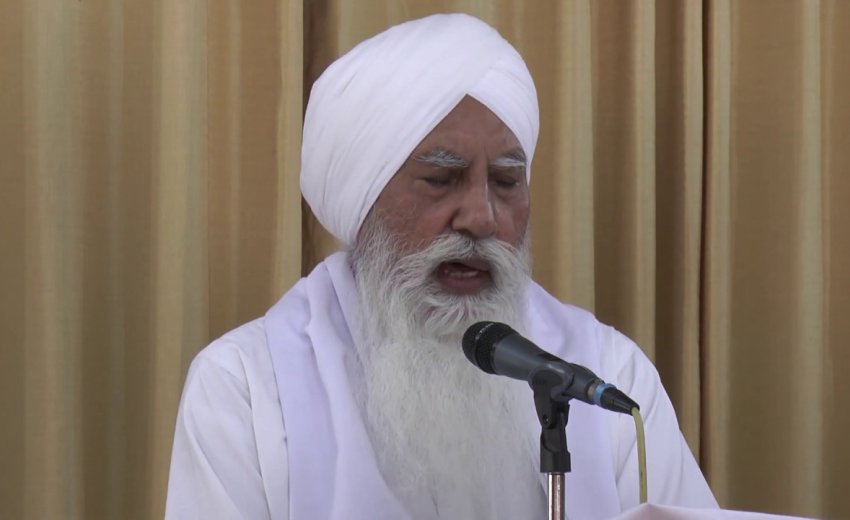Baba Sewa Singh, honored with the Padma Shri in 2010, a prestigious civilian award, has made significant contributions. Not only has he been instrumental in preserving and caring for the historical Gurudwaras in Khadoor Sahib, but he has also taken on the responsibility of enhancing our environment by planting trees nationwide. His commitment to both cultural heritage and environmental well-being reflects a remarkable dedication to the betterment of our society.
About Baba Sewa Singh
Baba Sewa Singh is an Indian who works hard to help others and protect nature. He's dedicated to fixing and looking after the important Gurudwaras at Khadoor Sahib. In 2004, he was honored with the Guru Gobind Singh Foundation Sewa Award for his amazing work. As the leader of Kaar Sewa Khadur Sahib, he oversees building and fixing important Sikh Gurdwaras across India.
An environmentalist
Baba Sewa Singh started a tree planting campaign in 1999 and has since planted over 650,000 trees across Punjab, Rajasthan, Madhya Pradesh, Delhi, and Mumbai. These trees thrive in various locations, from roadsides to schools, hospitals, and other public spaces. Covering 550 kilometers of roads and 500 villages, the initiative has made a significant impact.
In 2019, aiming to commemorate the birth anniversary of Sri Guru Nanak Dev Ji, the first Guru of Sikhs, Baba Sewa Singh set the goal to establish 550 small, dense forests. These Guru Nanak Memorial Forests host 50 different types of trees, including fruit-bearing, flowering, shade-providing, and medicinal varieties. So far, 231 of these forests have been successfully planted.
The focus isn't just on quantity but also on the quality of the trees planted. Species like Neem, Jamun, Tulsi, and others, known for their oxygen-rich properties and positive environmental impact, have been successfully introduced. Additionally, he took the initiative to plant around 10,000 traditional trees such as Banyan and Peepal with a particular emphasis on planting a significant number of "Triveni," groups of Banyan, Peepal, and Neem trees, known for their cultural and ecological significance.
He established a plant nursery in Khadur Sahib and is leading the way in environmental projects. They have over two hundred thousand saplings, carefully nurtured with the best natural resources available. The goal is to maintain ecological balance, preserve the environment, and shield it from harm caused by pollution or destruction.
Baba Sewa Singh’s focus on eco-friendly practices extends to encouraging local farmers to embrace horticulture. Orchards with various types of fruits have been established in Khadur Sahib as part of this effort. Moreover, the organization actively works to safeguard the air, water, and land from pollution and its harmful effects. They're reducing the use of plastic bags by using eco-friendly alternatives made from the fabric extracted from the white jute plant's bark. These bags not only help in carrying daily essentials but also contribute towards reducing plastic waste.
Through his lens
Singh, a humble individual, shares that his motivation for initiating these projects was not to seek recognition but rather to contribute to the welfare of humanity. Commencing the endeavors on the 500th birth anniversary of Guru Angad Dev, he aimed to engage in social work focusing on areas like the environment, education, and sports. Emphasizing the collective effort, Singh credits the success of these projects to the unity and dedication of Sikh devotees. He underlines that no single person could have accomplished this alone. Drawing inspiration from the teachings of the revered Shri Guru Granth Sahib, the emphasis on environmental conservation, particularly the protection of trees, serves as a guiding principle for their actions.
He said, “As people organize community meals to gain satisfaction so protection of environment is also service to the community as it provides fresh air. If you plant more trees, they will provide oxygen and people will remain healthy.”
Singh emphasized the pressing threat of global warming and its detrimental effects on the environment. He highlighted the alarming rate at which glaciers are melting and stressed that environmental preservation stands as a paramount crisis. Singh underscored the urgent need to safeguard water reservoirs and combat air pollution, noting the absence of effective measures for cleaning polluted air. He advocated for proactive measures, emphasizing the importance of planting trees to enhance air quality and maintain a clean environment.
Singh urged people of all ages to prioritize environmental cleanliness, emphasizing the crucial role each individual plays in planting trees and conserving water. He also mentioned his ongoing efforts across various regions in the country to address these environmental challenges.
"We plan to add 20 to 25 kms this year. If we get more cooperation from Sikh devotees then we can enlarge the effort as we have 100,000 saplings in our nursery. We even supply these saplings to schools, cremation grounds and panchayat lands. Be it a Sikh, Buddhist, Jain or a Muslim - any person who believes in his religion, works for humanity," he added.
*Based on an article published news.oneindia.in on 15th February 2010

